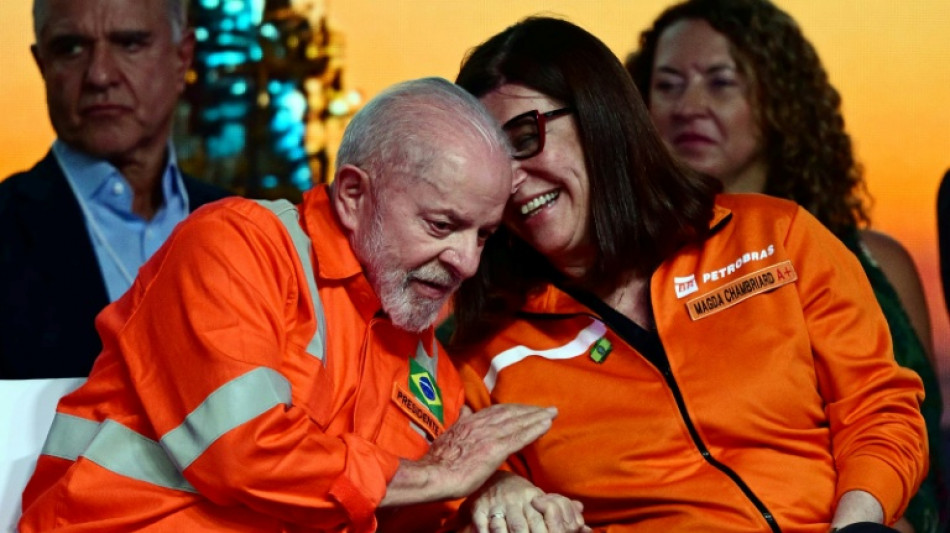
-
 Falcons beat Bills while Bears edge Commanders in NFL
Falcons beat Bills while Bears edge Commanders in NFL
-
Dodgers edge Brewers, Mariners rout Jays in MLB playoffs

-
 Purrno Noir? New Zealand company sells non-alcoholic wine for pets
Purrno Noir? New Zealand company sells non-alcoholic wine for pets
-
US threats cast doubt on shipping emissions deal
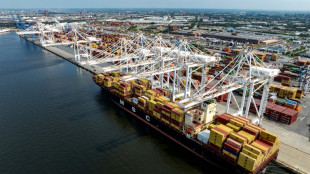
-
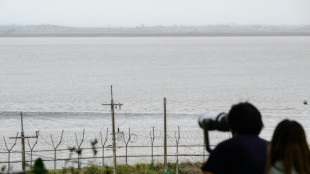 North Korean refugees long for family behind impenetrable border
North Korean refugees long for family behind impenetrable border
-
Asian stocks pare tariff-led losses, Tokyo hit by political turmoil

-
 Honduras beats Haiti for World Cup qualifying group lead
Honduras beats Haiti for World Cup qualifying group lead
-
Venezuelan Nobel winner says Maduro will leave power 'with or without' talks

-
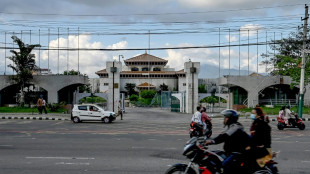 After uprising, Nepal's Gen Z rush to register to vote
After uprising, Nepal's Gen Z rush to register to vote
-
SpaceX's launches Starship megarocket on successful test flight

-
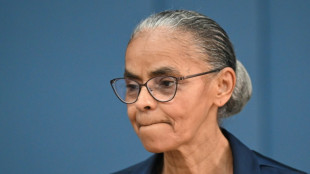 Four Brazilians to watch at COP30
Four Brazilians to watch at COP30
-
Brazil's climate wins ahead of COP30
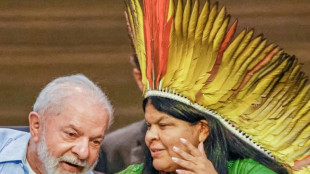
-
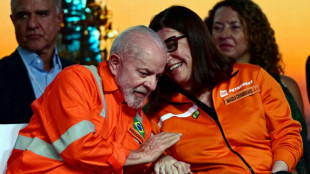 Black gold, green promises: Brazil's climate paradox
Black gold, green promises: Brazil's climate paradox
-
Myanmar scam cities booming despite crackdown -- using Musk's Starlink
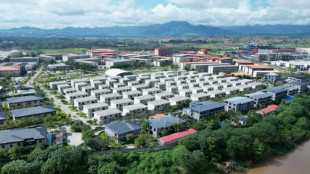
-
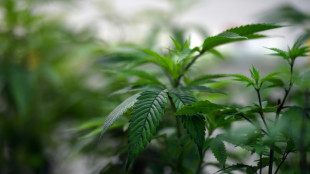 Australia doctors warn of 'excessive' medical weed prescriptions
Australia doctors warn of 'excessive' medical weed prescriptions
-
Mariners rout Blue Jays to seize 2-0 lead in MLB playoffs

-
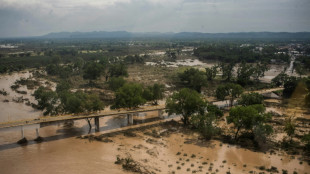 At least 64 dead, 65 missing in Mexico floods
At least 64 dead, 65 missing in Mexico floods
-
Global goal to end deforestation nowhere near being met: experts
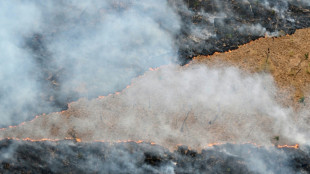
-
 SpaceX launches Starship test flight
SpaceX launches Starship test flight
-
NFL suspends Lions safety Branch for post-game scuffle

-
 Cape Verde erupts in celebration after first World Cup qualification
Cape Verde erupts in celebration after first World Cup qualification
-
France held in Iceland as Germany and Belgium close on 2026 World Cup

-
 Madagascar's cornered president ignores calls to resign
Madagascar's cornered president ignores calls to resign
-
MLB Padres manager Shildt retires over job's 'severe toll'

-
 NFL Titans fire Callahan as coach after 1-5 start
NFL Titans fire Callahan as coach after 1-5 start
-
Mateta off mark but France held by Iceland in World Cup qualifying

-
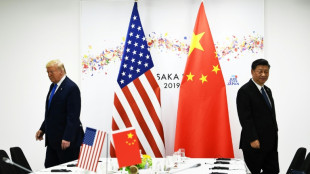 Wall Street stocks bounce after Trump-fueled slide
Wall Street stocks bounce after Trump-fueled slide
-
De Bruyne's penalty double fires Belgium to vital win over Wales

-
 Woltemade header sends Germany past Northern Ireland
Woltemade header sends Germany past Northern Ireland
-
Trump takes victory lap in the Middle East
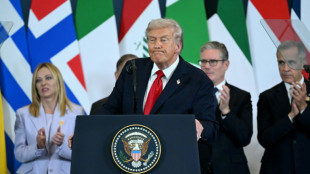
-
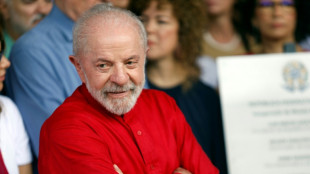 Brazil hopes Amazon summit can unite world for climate action
Brazil hopes Amazon summit can unite world for climate action
-
Nobel economist warns of AI dangers
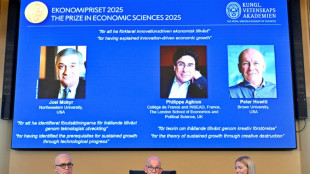
-
 Kane available to face Latvia as England aim to book World Cup place
Kane available to face Latvia as England aim to book World Cup place
-
Madagascar on edge as embattled president's address delayed
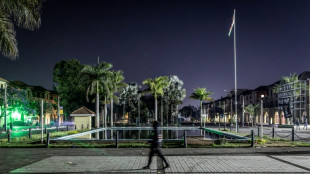
-
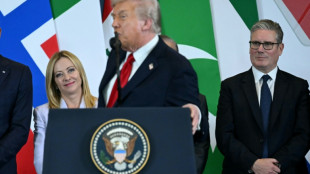 Trump calls Italian PM 'beautiful' at Gaza summit
Trump calls Italian PM 'beautiful' at Gaza summit
-
Historic World Cup qualification for Cape Verde islanders

-
 Lyles and McLaughlin Levrone nominated for World Athletics awards
Lyles and McLaughlin Levrone nominated for World Athletics awards
-
Embattled Madagascar president delays national address, again
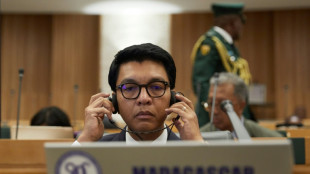
-
 California enacts first US law requiring AI chatbot safety measures
California enacts first US law requiring AI chatbot safety measures
-
SpaceX to launch Starship test flight Monday

-
 Trump hails 'tremendous day for Middle East' as leaders sign Gaza declaration
Trump hails 'tremendous day for Middle East' as leaders sign Gaza declaration
-
Eurovision organisers push back Israel decision to December

-
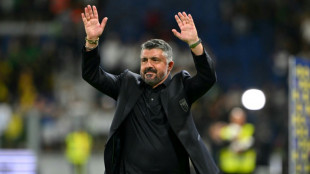 Italy's Gattuso 'very happy' at Gaza peace deal ahead of World Cup qualifier with Israel
Italy's Gattuso 'very happy' at Gaza peace deal ahead of World Cup qualifier with Israel
-
Macron slams French opposition for fuelling political 'chaos'

-
 Woody Allen says world 'drearier' without ex-partner Diane Keaton
Woody Allen says world 'drearier' without ex-partner Diane Keaton
-
Celebrations in Madagascar streets ahead of embattled president's address

-
 England's Millie Bright retires from international football
England's Millie Bright retires from international football
-
Freed Israeli hostages hug loved ones in tears of joy

-
 'Historic dawn': Trump takes victory lap in Israel
'Historic dawn': Trump takes victory lap in Israel
-
'New birth': Palestinians freed from Israeli jails return to loved ones


Black gold, green promises: Brazil's climate paradox
Can oil, the climate villain, be used to pay for its own demise?
Brazil's President Luiz Inacio Lula da Silva thinks so. He is pushing for more oil exploration, including offshore from the Amazon rainforest, while casting himself as a global leader on climate change.
"The world is not yet ready to live without oil," Lula, the host of this year's COP30 UN climate conference, told a local podcast.
"I am against fossil fuels whenever we can do without them. But until we can, we need to use them. Oil money will help us develop biofuels, ethanol, green hydrogen, and other initiatives," he said during an event earlier this year.
Brazil is the eighth biggest oil producer and Lula wants state energy giant Petrobras to be the "largest oil company in the world."
At the same time, he urges world leaders to step up in the fight against the climate crisis and he has pledged zero deforestation by 2030.
Critics say Lula's position is contradictory; others see it as pragmatic.
"It's becoming increasingly clear that developing countries won't be able to count on rich nations to finance their climate agenda," said Jorge Arbache, an economics professor at the University of Brasilia.
It's much harder to force a country like Brazil not to extract oil than it is to tell a rich-oil producing nation like Norway the same thing, according to him.
He said the question should be how to use this oil, "and within what environmental parameters.
"That should be an adult conversation."
- 'A historic mistake' -
Off the coast of the Amazon in northern Brazil, the world's mightiest river crashes into the ocean, sending a muddy brown plume of freshwater hundreds of kilometers into the blue-gray Atlantic -- a striking color contrast visible from space.
Plans for oil exploration in the biodiverse Foz do Amazonas basin have become a symbol of Lula's environmental contradictions.
After being denied a license to explore for oil in 2023, Petrobras recently passed a key environmental test by the Ibama environmental agency -- despite serious concerns noted by the regulator over plans to protect wildlife in the case of an oil spill.
Petrobras said in a statement that it expected to receive a drilling license soon.
The Foz de Amazonas is part of a promising new offshore oil frontier, with nearby Guyana emerging as a major oil producer in less than a decade following large offshore discoveries.
Petrobras says its models show that an oil spill at the offshore site "would not be likely to reach the coast" and there would be "no direct impact" on Indigenous communities.
"There is no such thing as sustainable oil, period," Suely Araujo, a former president of Ibama and coordinator of the Climate Observatory NGO, told AFP.
"We're in the midst of a climate crisis, with a slew of extreme events, and the option to continue indefinitely increasing oil production is a historical mistake."
- Exporting the problem -
Even if Petrobras strikes oil, the new block could take a decade to enter production.
The International Energy Agency predicts demand for oil will fall after 2030, making continued drilling economically risky, Araujo said.
She said Brazil's existing oil money had not proven to "solve social problems."
Brazil's Federal Court of Auditors (TCU) this year flagged "severe dysfunctions" with the distribution of royalties from oil revenues, which multiplied by 40 between 2000 and 2022.
It said 87 percent of royalties went to only three states, based on rules drawn up decades before Brazil was a major oil producer.
Brazil is one of the world's largest emitters of harmful greenhouse gases, but with an unusual profile, as it meets most of its energy needs through renewables.
Felipe Barcellos e Silva, a researcher at the Institute for Energy and the Environment thinktank, said 50 percent of Brazil's emissions came from deforestation and another 25 percent from agriculture.
Brazil exports more than half of its oil, so emissions from it won't add to its own greenhouse gas tally, "but will still be released globally."
Shigueo Watanabe Jr., a researcher at the ClimaInfo institute, calculated that burning the estimated reserves from Block 59 alone would emit 2.5 billion tons of CO₂ equivalent -- more than a year of Brazil's emissions.
"It's incoherent to talk about a transition linked to destruction," said environmentalist and Indigenous expert Neidinha Surui, who has spent decades fighting to protect native lands.
"What the president is doing is contributing to the pressure on the climate and the destruction of the planet. I hope he changes his attitude and sets more realistic goals for protecting nature," she told AFP.
P.Vogel--VB
